- Home
- Roger Zelazny
Dilvish, The Damned Page 3
Dilvish, The Damned Read online
Page 3
Black nodded and touched the first stair with his hoof. Fire rose from the stone. He drew back his hoof and smoke curled about it. There was no mark upon the stair to indicate where he had touched.
"I fear I cannot enter this place and preserve my form," he stated. "At the least, my form."
"What compels thee?"
"An ancient enchantment to preserve this place against the assault of any such as I."
"Can it be undone?"
"Not by any creature which walks this world or flies above it or writhes beneath it or I'm a horse. Though the seas some day rise and cover the land, this place will exist at their bottom. This was torn from Chaos by Order in the days when those principles stalked the land, naked, just beyond the hills. Whoever compelled them was one of the First, and powerful even in terms of the Mighty."
"Then I must go alone."
"Perhaps not. One is approaching even now with whom you had best wait and parley."
Dilvish waited, and a single horseman emerged from a distant street and advanced upon them. "Greetings," called the rider, raising his right hand, open.
"Greetings." Dilvish returned the gesture.
The man dismounted. His costume was deep violet in color, the hood thrown back, the cloak all engulfing. He bore no visible arms.
"Why stand you here before the Citadel of Rahoring?" he asked.
"Why stand you here to ask me, priest of Babrigore?" said Dilvish, and not ungently.
"I am spending the time of a moon in this place of death, to dwell upon the ways of evil. It is to prepare myself as head of my temple."
"You are young to be head of a temple."
The priest shrugged and smiled.
"Few come to Rahoringhast," he observed.
"Small wonder," did Dilvish reply. "I trust I shall not remain here long."
"Were you planning on entering this—place?" He gestured.
"I was, and am."
The man was half a head shorter than Dilvish, and it was impossible to guess at his form beneath the robes he wore. His eyes were blue and he was swarthy of complexion. A mole on his left eyelid danced when he blinked.
"Let me beg you reconsider this action," he stated. "It would be unwise to enter this building."
"Why is that?"
"It is said that it is still guarded within by the ancient warders of its lord."
"Have you ever been inside?"
"Yes."
"Were you troubled by any ancient wardens?"
"No, but as a priest of Babrigore I am under the protection of—of—Jelerak."
Dilvish spat.
"May his flesh be flayed from his bones and his life yet remain."
The priest dropped his eyes.
"Though he fought the creature which dwelled within this place," said Dilvish, "he became as foul himself afterward."
"Many of his deeds do lie like stains upon the land," said the priest, "but he was not always such a one. He was a white wizard who matched his powers against the Dark One, in days when the world was young. He was not sufficient. He fell. He was taken as servant by the Maleficient. For centuries he endured this bondage, until it changed him, as such must. He, too, came to glory in the ways of darkness. But then, when Selar of the Unseen Blade bought the life of Hohorga with his own, Jel—he fell as if dead and lay as such for the space of a week. Near delirious, when he awakened, he worked with counterspell at one last act of undoing: to free the cursed legions of Shoredan. He essayed that thing. He did. He stood upon this very stairway for two days and two nights, until the blood mingled with perspiration on his brow, but he could not break the hold of Hohorga. Even dead, the dark strength was too great for him. Then he wandered mad about the countryside, until he was taken in and cared for by the priests of Babrigore. Afterward he lapsed back into the ways he had learned, but he has always been kindly disposed toward the Order which cared for him. He has never asked anything more of us. He has sent us food in times of famine. Speak no evil of him in my presence."
Dilvish spat again.
"May he thrash in the darkness of the darknesses for the ages of ages, and may his name be cursed forever."
The priest looked away from the sudden blaze in his eyes.
"What want you in Rahoring?" he asked finally.
"To go within—and do a thing."
"If you must, then I shall accompany you. Perhaps my protection shall also extend to yourself."
"I do not solicit your protection, priest."
"The asking is not necessary."
"Very well. Come with me then."
He started up the stairway.
"What is that thing you ride?" asked the priest, gesturing back. "—Like a horse in form, but now it is a statue."
Dilvish laughed.
"I, too, know something of the ways of darkness, but my terms with it are my own."
"No man may have special terms with darkness."
"Tell it to a dweller in the Houses of Pain, priest. Tell it to a statue. Tell it to one who is all of the race of Men! Tell it not to me."
"What is your name?"
"Dilvish. What is yours?"
"Korel. I shall speak to you no more of darkness then, Dilvish, but I will still go with you into Rahoring."
"Then stand not talking." Dilvish turned and continued upward.
Korel followed him.
When they had gone halfway, the daylight began to grow dim about them. Dilvish looked back. All he could see was the stairway leading down and down, back. There was nothing else in the world but the stairs. With each step upward, the darkness grew.
"Did it happen thus when last you entered this place?" he asked.
"No," said Korel.
They reached the top of the stairs and stood before the dim portal. By then it was as though night lay upon the land.
They entered.
A sound, as of music, came far ahead and there was a flickering light within. Dilvish laid his hand upon the hilt of his sword. The priest whispered to him: "It will do you no good."
They moved up the passageway and came at length into a vacant hall. Braziers spewed flame from high sockets in the walls. The ceiling was lost in shadow and smoke.
They crossed that hall to where a wide stair led up into a blaze of light and sound.
Korel looked back.
"It begins with the light," said he, "all this newness" —gesturing. "The outer passage bore only rubble and… dust…"
"What else is the matter?" Dilvish looked back.
Only one set of footprints led into the hall through the dust. Dilvish then laughed, saving: "I tread lightly."
Korel studied him. Then he blinked and his mole jerked across his eye.
"When I entered here before," he said, "there were no sounds, no torches. Everything lay empty and still, ruined. Do you know what is happening?"
"Yes," said Dilvish, "for I read of it in the Green Books of Time at the keep of Mirata. Know, O priest of Babrigore, that within the hall above the ghosts do play at being ghosts. Know, too, that Hohorga dies again and again so long as I stand within this place."
As he spoke the name Hohorga a great cry was heard within the high hall. Dilvish raced up the stairs, the priest rushing after him.
Now within the halls of Rahoring there came up a mighty wailing.
They stood at the top of the stairs, Dilvish like a statue, blade half drawn from its sheath; Korel, hands within his sleeves, praying after the manner of his order.
The remains of a great feast were strewn about the hall; the light came down out of the air from colored globes that circled like planets through the great heaven-design within the vaulted ceiling; the throne on the high dais beside the far wall was empty. That throne was too large for any of this age to occupy. The walls were covered all over with ancient devices, strange, on alternate slabs of white and orange marble. In the pillars of the wall were set gems the size of doubled fists, burning yellow and emerald, infraruby and ultrablue, casting a fire radiance, t
ransparent and illuminating, as far as the steps to the throne. The canopy of the throne was wide and all of white gold, worked in the manner of mermaids and harpies, dolphins and goat-headed snakes; it was supported by wyvern, hippogriff, firedrake, chimera, unicorn, cockatrice, griffin, and pegasus, sejant erect. It belonged to the one who lay dying upon the floor.
In the form of a man, but half again as large, Hohorga lay upon the tiles of his palace and his intestines filled his lap. He was supported by three of his guard, while the rest attended to his slayer. It had been said in the Books of Time that Hohorga the Maleficent was indescribable. Dilvish saw that this was both true and untrue.
He was fair to look upon and noble of feature; but so blindingly fair was he that all eyes were averted from that countenance now lined with pain. A faint bluish halo was diminishing about his shoulders. Even in the death pain he was as cold and perfect as a carved gem-stone, set upon the red-green cushion of his blood; his was the hypnotic perfection of a snake of many colors. It is said that eyes have no expression of their own, and that one could not reach into a barrel of eyes and separate out those of an angry man or those of one's beloved. Hohorga's eyes were the eyes of a ruined god: infinitely sad, as proud as an ocean of lions.
One look and Dilvish knew this thing, though he could not tell their color.
Hohorga was of the blood of the First.
The guards had cornered the slayer. He fought them, apparently empty-handed, but parrying and thrusting as though he gripped a blade. Wherever his hand moved, there were wounds.
He wielded the only weapon that might have slain the King of the World, who permitted none to go armed in his presence save his own guard.
He bore the Invisible Blade.
He was Selar, first of the Elvish house of that name, great-gone-sire of Dilvish, who at that moment cried out his name.
Dilvish drew his blade and rushed across the hall. He cut at the attackers, but his blade passed through them as through smoke.
They beat down Solar's guard. A mighty blow sent something unseen ringing across the hall. Then they dismembered him, slowly, Selar of Shoredan, as Dilvish wept, watching.
And then Hohorga spoke, in a voice held firm though soft, without inflection, like the steady beating of surf or the hooves of horses:
"I have outlived the one who presumed to lay hands upon me, which is as it must be. Know that it was written that eyes would never see the blade that could slay me. Thus do the powers have their jokes. Much of what I have done shall never be undone, O children of Men and Elves and Salamanders. Much more than you know do I take with me from this world into the silence. You have slain that which was greater than yourselves, but do not be proud. It matters no longer to me. Nothing does. Have my curses."
Those eyes closed and there was a clap of thunder. Dilvish and Korel stood alone in the darkened ruins of a great hall.
"Why did this thing appear today?" asked the priest.
"When one of the blood of Selar enters here," said Dilvish, "it is reenacted."
"Why have you come here, Dilvish, son of Selar?"
"To ring the bells of Shoredan."
"It cannot be."
"If I am to save Dilfar and redeliver Portaroy it must be.
"I go now to seek the bells," he said.
He crossed through the near blackness of night without stars, for neither were his eyes the eyes of Men, and he was accustomed to much dark.
He heard the priest following after him.
They circled behind the broken bulk of the Earth Lord's throne. Had there been sufficient light as they passed, they would have seen darkened spots upon the floor turning to stain, then crisp sand-brown, and then to red-green blood, as Dilvish moved near them, and vanishing once again as he moved away.
Behind the dais was the door to the central tower. Fevera Mirata, Queen of Illusion, had once shown Dilvish this hall in a mirror the size of six horsemen riding abreast, and broidered about with a frame of golden daffodils that hid their heads till it cleared of all save their reflections.
Dilvish opened the door and halted. Smoke billowed forth, engulfing him. He was seized with coughing but he kept his guard before him.
"It is the Warden of the Bells!" cried Korel. "Jelerak deliver us!"
"Damn Jelerak!" said Dilvish. "I'll deliver myself."
But as he spoke, the cloud swirled away and spun itself into a glowing tower that held the doorway, illuminating the throne and the places about the throne. Two red eyes glowed within the smoke.
Dilvish passed his blade through and through the cloud, meeting with no resistance.
"If you remain incorporeal, I shall pass through you," he called out. "If you take a shape, I shall dismember it. Make your choice," and he said it in Mabrahoring, the language spoken in Hell.
"Deliverer, Deliverer, Deliverer," hissed the cloud, "my pet Dilvish, little creature of hooks and chains. Do you not know your master? Is your memory so short?" And the cloud collapsed upon itself and coalesced into a bird-headed creature with the hindquarters of a lion and two serpents growing up from its shoulders, curling and engendering about its high crest of flaming quills.
"Cal-den!"
"Aye, your old tormenter, Elf man. I have missed you, for few depart my care. It is time you returned."
"This time," said Dilvish, "I am not chained and unarmed, and we meet in my world," and he cut forward with his blade, striking the serpent head from Cal-den's left shoulder.
A piercing bird cry filled the hall and Cal-den sprang forward.
Dilvish struck at his breast but the blade was turned aside, leaving only a smallish gash from which a pale liquor flowed.
Cal-den struck him then backward against the dais, catching his blade in a black claw, shattering it, and he raised his other arm to smite him. Dilvish did then stab upward with what remained of the sword, nine inches of jagged length.
It caught Cal-den beneath the jaw, entering there and remaining, the hilt torn from Dilvish's hand as the tormentor shook his head, roaring.
Then was Dilvish seized about the waist so that his bones did sigh and creak within him. He felt himself raised into the air, the serpent tearing at his ear, claws piercing his sides. Cal-den's face was turned up toward him, wearing the hilt of his blade like a beard of steel.
Then did he hurl Dilvish across the dais, so as to smash him against the tiles of the floor.
But the wearer of the green boots of Elfland may not fall or be thrown to land other than on his feet.
Dilvish did recover him then, but the shock of his landing caused pain in the thigh wound he bore. His leg collapsed beneath him, so that he put out his hand to the side.
Cal-den did then spring upon him, smiting him sorely about the head and shoulders. From somewhere Korel hurled a stone that struck upon the demon's crest.
Dilvish came scrambling backward, until his hand came upon a thing in the rubble that drew the blood from it.
A blade.
He snatched at the hilt and brought it up off the floor with a side-armed cut that struck Cal-den across the back, stiffening him into a bellow that near burst the ears to hear. Smoke rose from the wound.
Dilvish stood, and saw that he held nothing.
Then did he know that the blade of his ancestor, which no eyes may look upon, had come to him from the ruins, where it had lain across the ages, to serve him, scion of the House of Selar, in this moment of his need.
He directed it toward the breast of Cal-den.
"My rabbit, you are unarmed, yet you have cut me," said the creature. "Now shall we return to the Houses of Pain."
They both lunged forward.
"I always knew," said Cal-den, "that my little Dilvish was something special," and he fell to the floor with an enormous crash and the smokes arose from his body.
Dilvish placed his heel upon the carcass and wrenched free the blade outlined in steaming ichor.
"To you, Selar, do I owe this victory," he said, and raised a length of smould
ering nothingness in salute. Then he sheathed the sword.
Korel was at his side. He watched as the creature at their feet vanished like embers and ice, leaving behind a stench that was most foul to smell.
Dilvish turned him again to the door of the tower and entered there, Korel at his side.
The broken bellpull lay at his feet. It fell to dust when he touched it with his toe.
"It is said," he told Korel, "that the bellpull did break in the hands of the last to ring it, half an age ago."
He raised his eye, and there was only darkness above him.
"The legions of Shoredan did set forth to assault the Citadel of Rahoring," said the priest, as though reading it from some old parchment, "and word of their movement came soon to the King of the World. Then did he lay upon three bells cast in Shoredan a weird. When these bells were rung, a great fog came over the land and engulfed the columns of marchers and those on horseback. The fog did disperse upon the second ringing of the bells, and the land was found to be empty of the troop. It was later written by Merde, Red Wizard of the South, that somewhere still do these marchers and horsemen move, through regions of eternal fog. 'If these bells be rung again by a hand of that House which dispatched the layer of the weird, then will these legions come forth from a mist to serve that one for a time in battle. But when they have served, they will vanish again into the places of gloom, where they will continue their march upon a Rahoringhast which no longer exists. How they may be freed to rest, this thing is not known. One mightier than I has tried and failed.'"
Dilvish bowed his head a moment, then he felt the walls. They were not like the outer walls. They were cast of blocks of that same material, and between those blocks were scant crevices wherein his fingers found purchase.
He raised himself above the floor and commenced to climb, the soft green boots somehow finding toeholds wherever they struck.
The air was hot and stale, and showers of dust descended upon him each time he raised an arm above his head.
He pulled himself upward, until he counted a hundred such movements and the nails of his hands were broken. Then he clung to the wall like a lizard, resting, and felt the pains of his last encounter burning like suns within him.

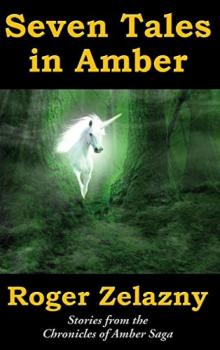 Seven Tales in Amber
Seven Tales in Amber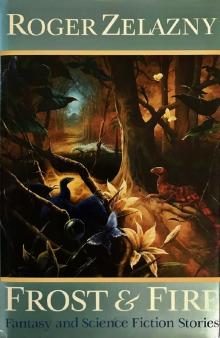 Frost and Fire
Frost and Fire Doorways in the Sand
Doorways in the Sand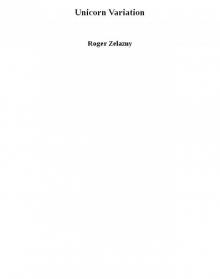 Unicorn Variation
Unicorn Variation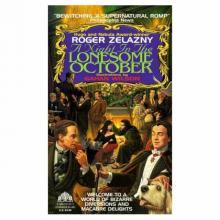 A Night in the Lonesome October
A Night in the Lonesome October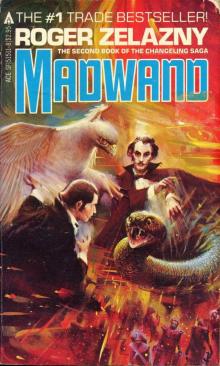 Madwand
Madwand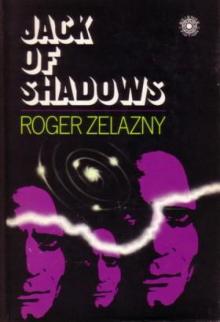 Jack Of Shadows
Jack Of Shadows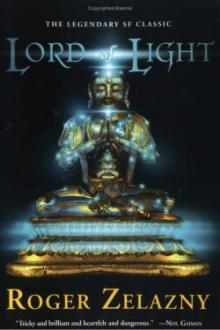 Lord of Light
Lord of Light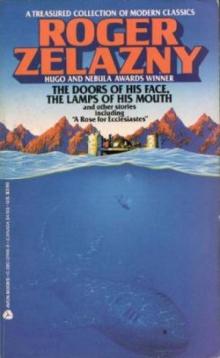 The Doors of His Face, The Lamps of His Mouth and Other Stories
The Doors of His Face, The Lamps of His Mouth and Other Stories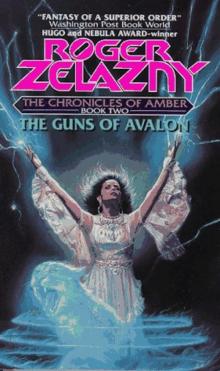 Guns Of Avalon tcoa-2
Guns Of Avalon tcoa-2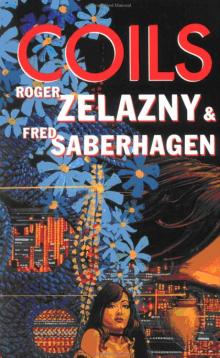 Coils
Coils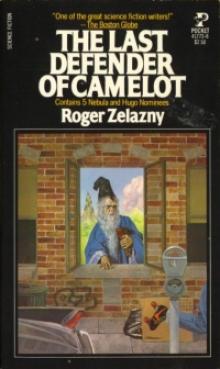 The Last Defender Of Camelot
The Last Defender Of Camelot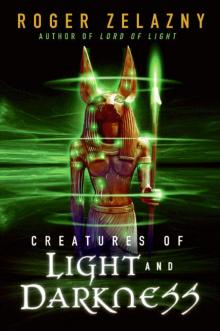 Creatures of Light and Darkness
Creatures of Light and Darkness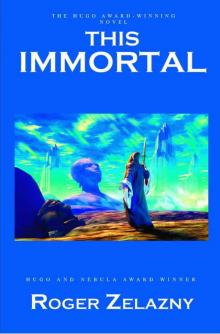 This Immortal
This Immortal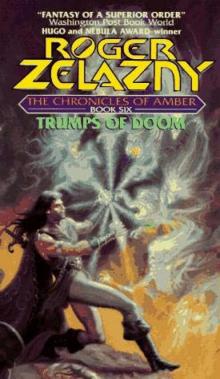 Trumps of doom tcoa-6
Trumps of doom tcoa-6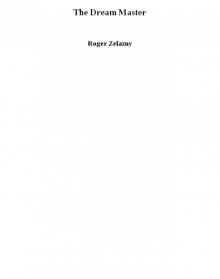 The Dream Master
The Dream Master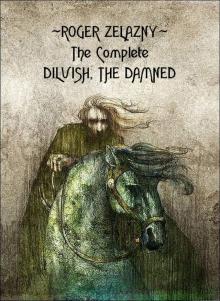 The Complete Dilvish, The Damned
The Complete Dilvish, The Damned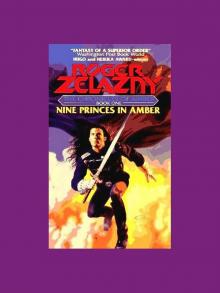 Nine Princes in Amber
Nine Princes in Amber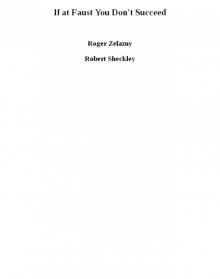 If at Faust You Don't Succeed
If at Faust You Don't Succeed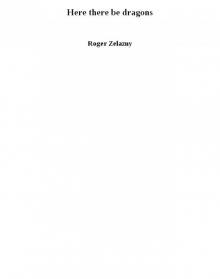 Here there be dragons
Here there be dragons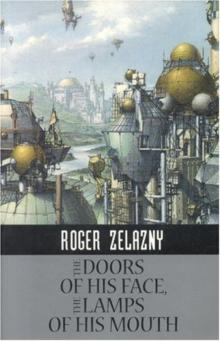 The Doors Of His Face, The Lamps Of His Mouth
The Doors Of His Face, The Lamps Of His Mouth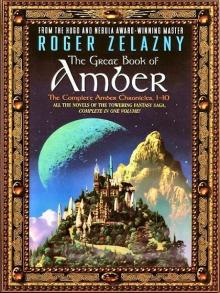 The Great Book of Amber - Chronicles 1-10
The Great Book of Amber - Chronicles 1-10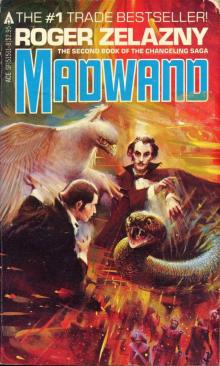 Madwand (Illustrated)
Madwand (Illustrated)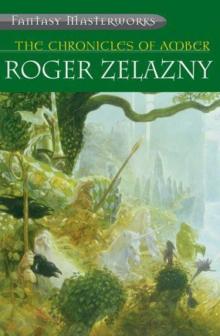 The Chronicles of Amber
The Chronicles of Amber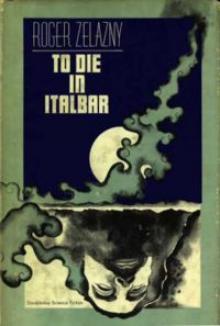 To Die In Italbar
To Die In Italbar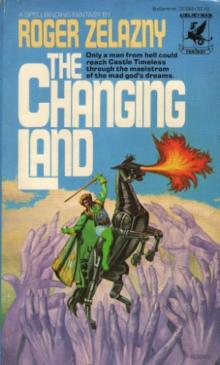 The Changing Land
The Changing Land The Furies
The Furies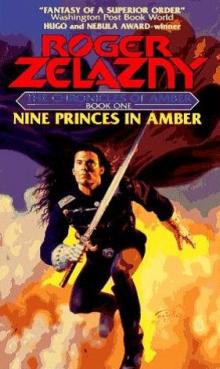 Nine Princes In Amber tcoa-1
Nine Princes In Amber tcoa-1 Last Of The Wild Ones
Last Of The Wild Ones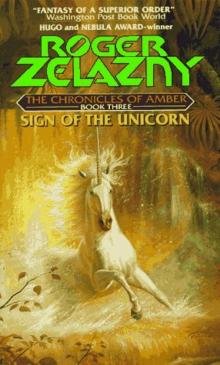 Sign of the Unicorn tcoa-3
Sign of the Unicorn tcoa-3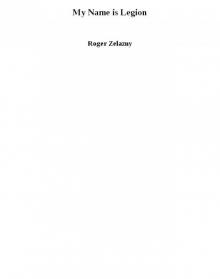 My Name is Legion
My Name is Legion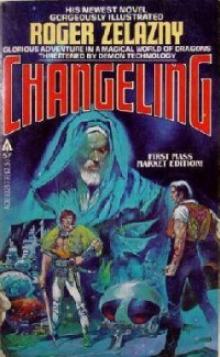 Wizard World 1: Changeling
Wizard World 1: Changeling Changeling
Changeling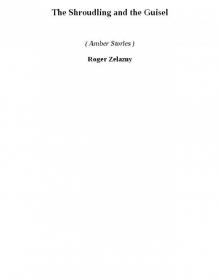 The Shroudling and the Guisel (amber stories)
The Shroudling and the Guisel (amber stories)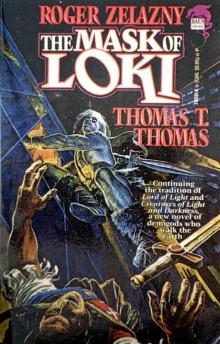 The Mask of Loki
The Mask of Loki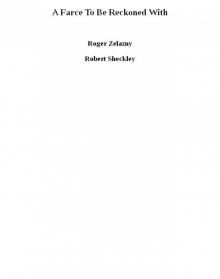 A Farce To Be Reckoned With
A Farce To Be Reckoned With Roadmarks
Roadmarks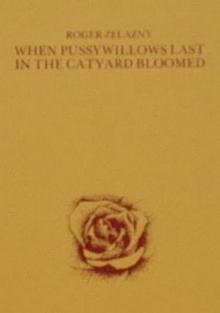 When Pussywillows Last in the Catyard Bloomed (rtf)
When Pussywillows Last in the Catyard Bloomed (rtf)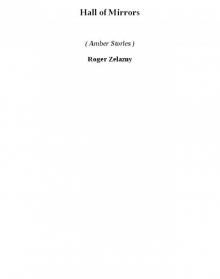 Hall of Mirrors (amber stories)
Hall of Mirrors (amber stories)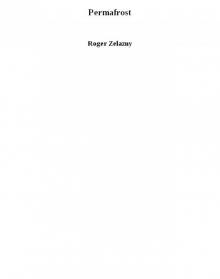 Permafrost
Permafrost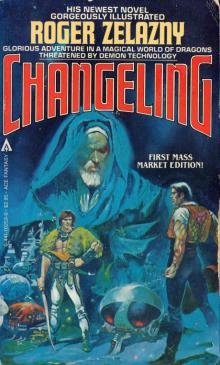 Changeling (Illustrated)
Changeling (Illustrated)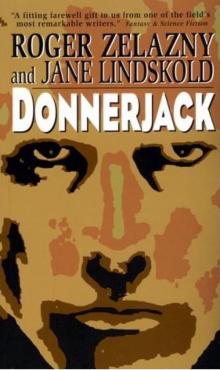 Donnerjack
Donnerjack Shadows & Reflections: A Roger Zelazny Tribute Anthology
Shadows & Reflections: A Roger Zelazny Tribute Anthology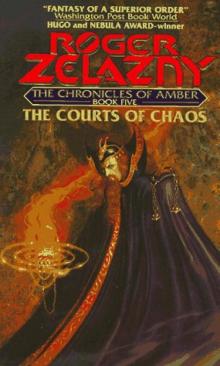 The Courts Of Chaos tcoa-5
The Courts Of Chaos tcoa-5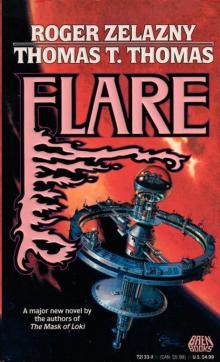 Flare
Flare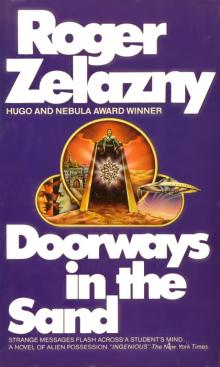 Doorsways in the Sand
Doorsways in the Sand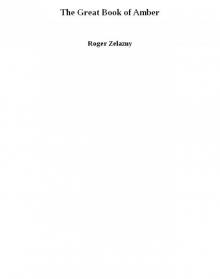 The Great Book of Amber
The Great Book of Amber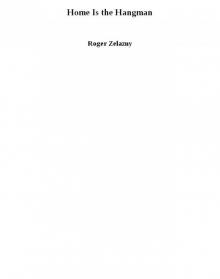 Home Is the Hangman
Home Is the Hangman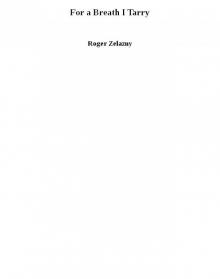 For a Breath I Tarry
For a Breath I Tarry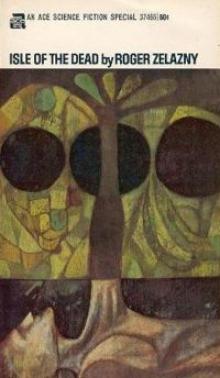 Isle Of The Dead
Isle Of The Dead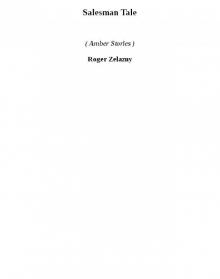 Salesman Tale (amber stories)
Salesman Tale (amber stories)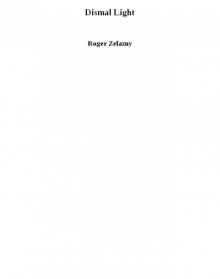 Dismal Light
Dismal Light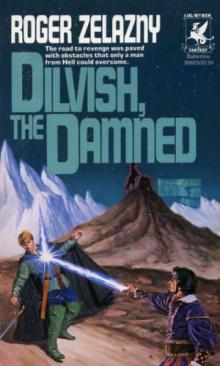 Dilvish, The Damned
Dilvish, The Damned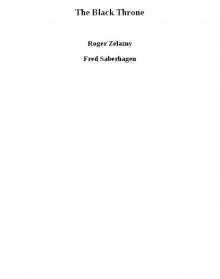 The Black Throne
The Black Throne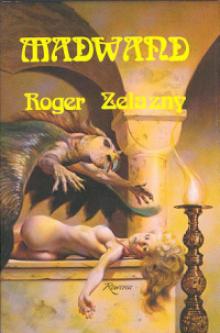 Wizard World 2: Madwand
Wizard World 2: Madwand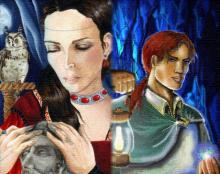 The Salesman's Tale
The Salesman's Tale